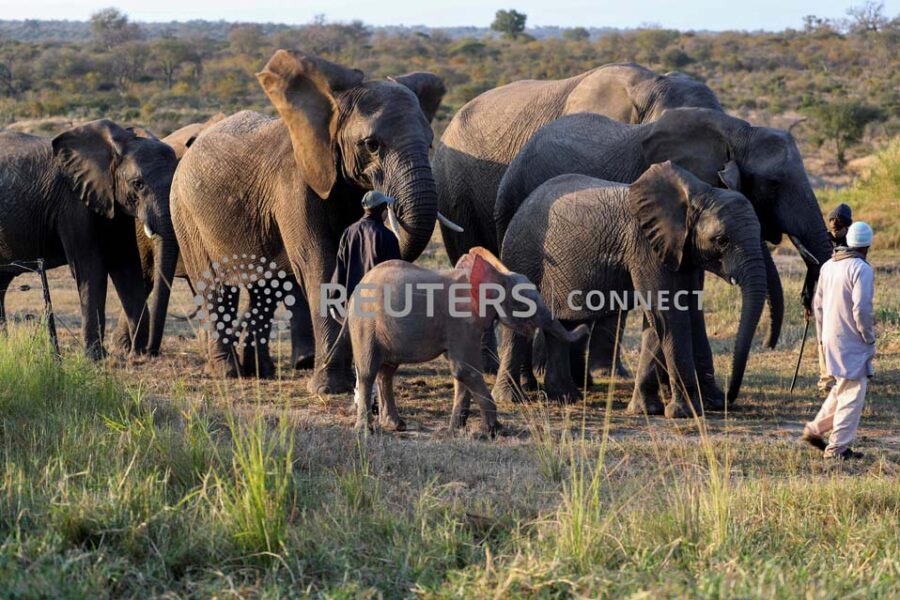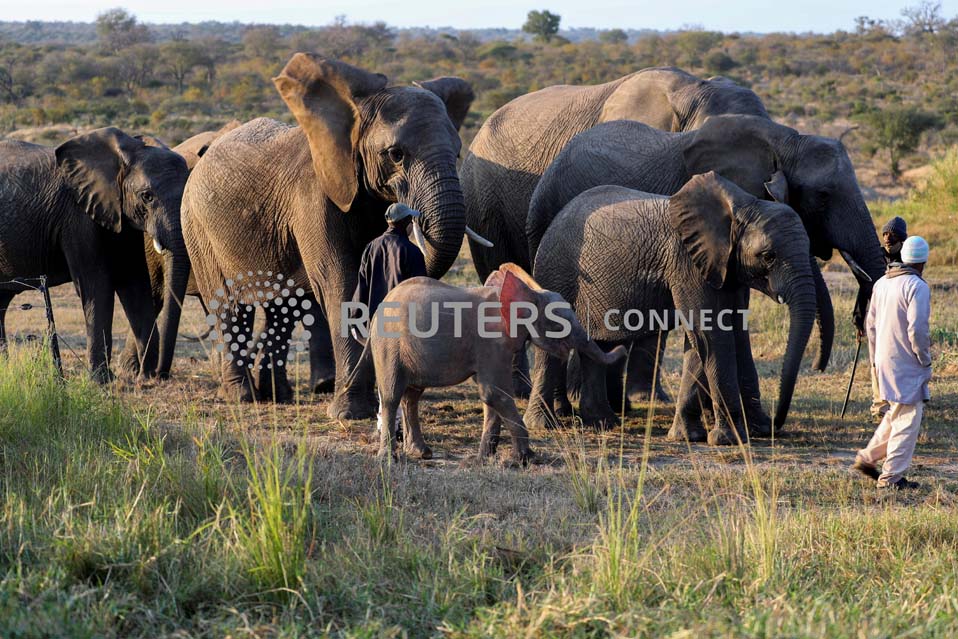
Gin Made From Elephant Dung Becomes Popular South African Export
HOEDSPRUIT, South Africa (Reuters) – One of the joys of artisanal gin-making is sniffing the fragrant botanicals, fruits and seeds used to create the aromatic spirit – but not usually after they’ve passed through the digestive tract of an elephant! Yet that is exactly what Les Ansley does when, foraging through the South African wilderness, […]

HOEDSPRUIT, South Africa (Reuters) – One of the joys of artisanal gin-making is sniffing the fragrant botanicals, fruits and seeds used to create the aromatic spirit – but not usually after they’ve passed through the digestive tract of an elephant!

Yet that is exactly what Les Ansley does when, foraging through the South African wilderness, he finds a prime specimen of elephant dung, lifting it to his nose to inhale its complex aroma before bagging it to be made into high-end booze that the loyal local and international market are loving.
Launched in 2018, Indlovu gin – named after the regional Nguni word for elephant – has expanded into the United States, Canada, Germany, Switzerland, Japan and Taiwan during the COVID-19 pandemic.
Ansley and his wife Paula, who relocated back to South Africa from the UK, now export 1,500 bottles of the gin a month. And since the start of this year, two of South Africa’s biggest retailers, Woolworths and Pick ‘n Pay, stock it.
Paula was inspired to create a unique African gin during a safari trip to Kenya (and while drinking a G&T), when a ranger informed them that elephants digest only 30% of what they eat and the remaining 70% is left on the field floor as waste.
So, the elephants effectively do the work, finding the variety of herbs and fruit that give the gin its taste, explains Ansley. The couple use different game reserves in South Africa to collect the elephant dung which is then washed and dried, before being immersed in an alcohol base (like brewing a cup of tea!) before it’s mixed with the gin to create the unique botanical flavour.
Would you drink gin made from elephant dung?


“The elephants, because they digest so little… they have a very quick gut in-transit time, low gut bacteria, and very poor absorption,” he told Reuters TV.
“So they are perfect for extracting all the botanicals… they are very selective… they get to choose the best leaves and the best fruits and the best flowers and the best plants.”
As well as the gin staples such as juniper and citrus, the dried and washed botanicals from the elephants change with the season and climate, giving different flavours to different batches. The date and coordinates of the dung collection are given on the bottles produced, the distiller said.

The couple give 15% of Indlovu Gin’s profits to HERD elephant orphanage, another reason it might appeal to consumers, besides novelty.
Ansley says “we’ve got a lovely following, a very committed following in South Africa. And so the gin seems to be going to be strength to strength and I think it is because it is more than just a gin. When you’re buying the gin, you’re buying into the story and you’re buying into contributing and giving back.” One of the HERD beneficiaries is well-known female Albino elephant Khanyisa. (Pictured above.)
The distillery is in Paarl in the Western Cape where locals have welcomed the new gin. Paarl resident Farah Pirouz told Reuters TV: “When I first heard that there is this gin made out of elephant dung, I had to laugh and think to myself how can it be? But then learning about the process of collecting the dung in one of the game reserves here in South Africa and the process of cleaning the herbs that elephants have collected, I was amazed.”
Another, Sharon Godlonton, said: “It’s just so South African and it’s great that it brings a lot of attention to the elephants in South Africa and it’s just lovely to have something that’s totally novel.”

But how does gin made from elephant dung taste?
“It is earthy,” bartender Johanna Jones said, squeezing an orange into the gin to make a cocktail. “That’s what makes it different.”
(Reporting by Sisipho Skweyiya; Writing by Tim Cocks; Editing by Alison Williams)
From Hollywood to Hoedspruit, Tom Cruise is in South Africa filming Mission: Impossible 8.
